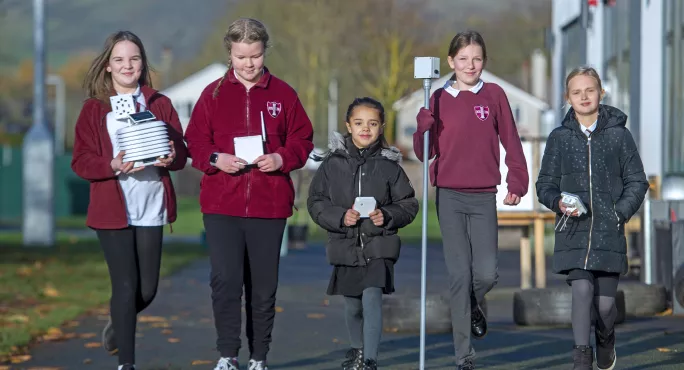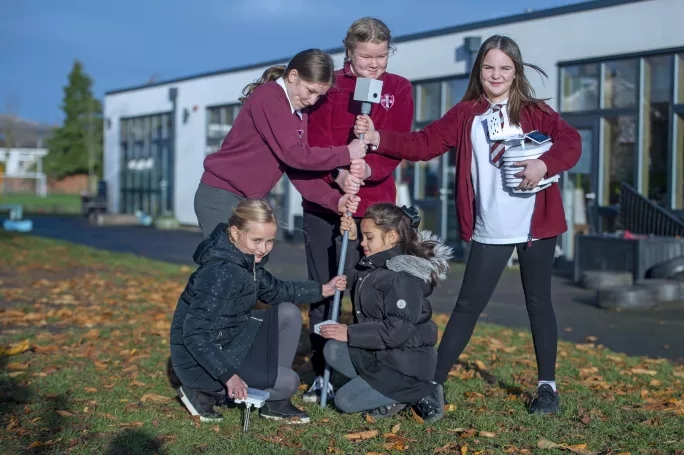An initiative that brings the latest smart technology into classrooms has been launched to help pupils prepare for a data-driven future.
Primary and secondary classes across south-east Scotland will learn how to interpret large quantities of statistics produced by sensors tracking environmental conditions in their schools.
The scheme, backed by the UK and Scottish governments, will introduce pupils to the so-called Internet of Things (IoT) - networks of devices capable of collecting and exchanging a vast range of data.
Learning how to make sense of the data is designed to help pupils improve their school environment and to navigate an increasingly complex digital landscape, as well as helping prepare them for work in new data-driven industries.
Quick read: Use of facial recognition in schools - what we know
Data: 4 ways to transform Scottish education
Online learning: Education must not go ‘back to normal’ says Mitra
Advice: 4 smart pieces of tech to upgrade your online learning
Classroom sensors that gauge CO2, temperature, humidity, air pressure and light levels will be offered to all 550 schools. It is hoped this will help pupils navigate a world in which they are now bombarded with information from smartphones and social media.
Some schools involved in the £9.5 million project will also receive outdoor air-quality monitors, soil-moisture sensors and weather stations.
Each device will be linked to a high-performance computer at the University of Edinburgh where the raw data will be converted into graph form, which pupils can readily access.
This example of the IoT in action aims to help pupils make informed decisions that will improve learning conditions in class.
Sensor readings might suggest, for example, that improving oxygen or light levels in a classroom would boost pupils’ alertness during lessons. Outside of the classroom, analysis of playground air quality might highlight that steps should be taken to reduce levels of exhaust fumes at the school gate.
The IoT project aims to help the pupils of today become the data citizens of tomorrow. It has been piloted at two Midlothian schools - Roslin Primary (pictured below) and Newbattle High - as part of the wider Data Education in Schools programme.
So far, pupils and teachers at Roslin and Newbattle have worked with engineers, data educators and technologists to design a range of classroom solutions.
Now, the project will extend to every school in Edinburgh, the Lothians, Fife and the Scottish Borders. Support will be available to pupils and teachers through the Data Education in Schools Team at the university.
An official launch took place at Roslin Primary today. UK government minister for Scotland Iain Stewart said: “The UK government’s £260 million support for Data-Driven Innovation around Edinburgh is equipping people with the skills and knowledge to make the most of an increasingly data-driven world.
“This fantastic programme gives students the tools they need to learn about data and use it to improve their school environment.”
The IoT project is being funded as part of the Edinburgh and South East Scotland City Region Deal.
A key objective of the £1.3 billion deal is to make Edinburgh and south-east Scotland the “data capital of Europe”.
Professor Judy Robertson, chair of digital learning at the University of Edinburgh, says that data skills development is relevant across all curriculum areas, topics and themes.
“Data has been hugely significant in decision-making around Covid, but it influences many areas and having the skills to use data effectively and responsibly is increasingly important,” said Professor Robertson.
Simon Chapple, head of data technology at the University of Edinburgh, said: “The sensor network will introduce the secure and safe use of connected IoT sensors in the taught curriculum, and play a crucial role in aiding the development of data literacy in schools.”






